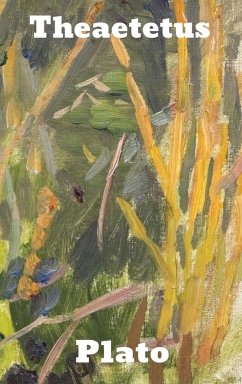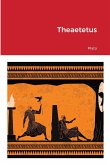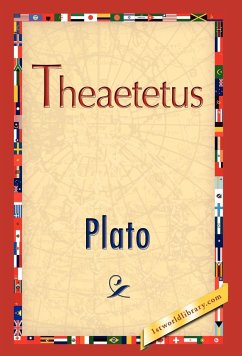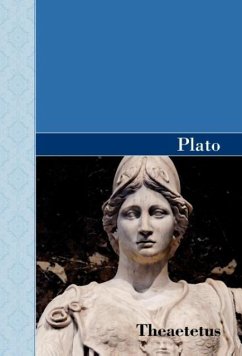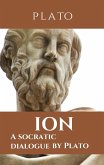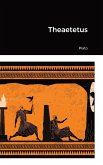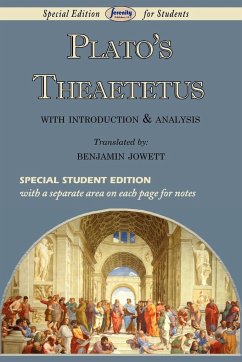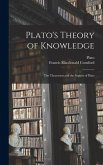The Theaetetus is one of Plato's dialogues concerning the nature of knowledge, written circa 369 BCE. In this dialogue, Socrates and Theaetetus discuss three definitions of knowledge: knowledge as nothing but perception, knowledge as true judgment, and, finally, knowledge as a true judgment with an account. Each of these definitions is shown to be unsatisfactory. Socrates declares Theaetetus will have benefited from discovering what he does not know, and that he may be better able to approach the topic in the future. The conversation ends with Socrates' announcement that he has to go to court to face a criminal indictment. The dialogue is framed by a brief scene in which Euclid of Megara tells his friend Terpsion that he has a written record of a dialogue between Socrates and Theaetetus, which occurred when Theaetetus was quite a young man. This dialogue is then read aloud to the two men by a slave boy owned by Euclid. After distinguishing between knowledge and true judgement, Theaetetus recalls being told that true judgement 'with an account (logos) equates to knowledge (201d). Things without an account are 'unknowable', while things with an account are 'knowable'. Socrates responds by telling of a dream, in which he overheard people talking of primary elements (201e). These primary elements can only be named, they cannot be thought of as existing or not - he gives examples of words like 'itself, or that, each, alone or this' (202a). While they can be added to other words, they by themselves are just a name. When these elements are added together, Socrates says that a 'complex' is formed (202b). The primary elements are 'unaccountable and unknowable, but perceivable' while the complexes are 'knowable and expressible' and so can be objects of 'true judgement' (202b). He concludes his dream by agreeing with Theaetetus that knowledge is 'true judgement with an account' (202c). However, Socrates exposes some difficulties by examining letters. He takes the first two letters of his name, S and O to wonder if the syllable 'So' is knowable while the individual letters are not (203b-d). Theaetetus finds the idea strange, so Socrates deduces that in order to know the syllable, the letters must be known first (203e). Socrates proposes that the syllable can be a 'single form' produced from the letters. With this in mind, Socrates considers whether the 'sum' and the 'whole' are the same (204a). Theaetetus initially says they are not, but changes his mind in confusion when Socrates leads him through maths and the different ways of expressing the number six (204c-205b). After agreeing this, Socrates returns to the subject of syllables and letters to conclude from Theaetetus' answers that syllables are different from letters and cannot contain letters (205b). Theaetetus admits this idea is ridiculous (205c). Socrates returns to talking about elements and complexes to propose that they are in the same class, as they have 'no parts and [are] a single form'
Hinweis: Dieser Artikel kann nur an eine deutsche Lieferadresse ausgeliefert werden.
Hinweis: Dieser Artikel kann nur an eine deutsche Lieferadresse ausgeliefert werden.

